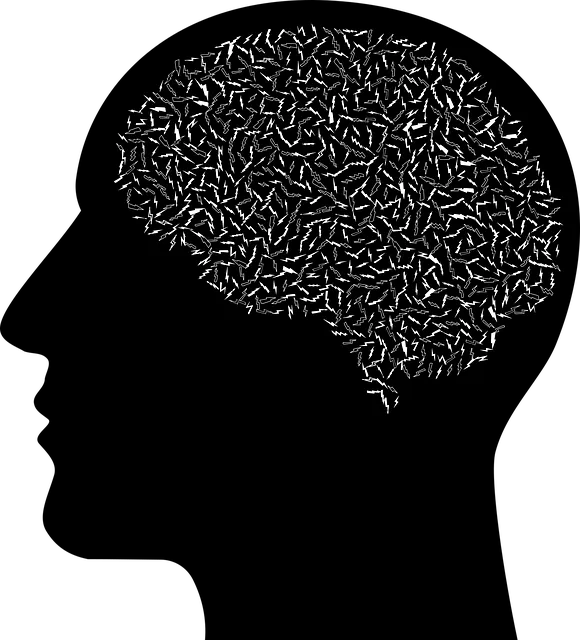The Kaiser Permanente Mental Health Access Center in Highlands Ranch prioritizes patient-centric care through comprehensive risk assessment and management. They offer personalized support using evidence-based methods like communication strategies, positive thinking, and social skills training to empower clients in managing their mental well-being. Their holistic approach includes empathy-building, self-care practices, and community support, ensuring individuals are equipped to navigate life's challenges effectively. The center's data-driven risk management system, coupled with cultural competency and innovative tools, ensures continuous improvement in harm minimization strategies, catering to diverse patient needs and fostering improved mental wellness outcomes within the community.
“Risk assessment and harm minimization are critical components of ensuring patient safety in mental health settings. This comprehensive guide explores essential practices through the lens of the Kaiser Permanente Mental Health Access Center Highlands Ranch approach, offering a robust framework for professionals. We delve into understanding risk assessment as a foundational step, identifying and evaluating risks specific to mental health environments, and developing effective harm minimization strategies. Additionally, we cover implementation, monitoring, and continuous improvement techniques for optimal patient care.”
- Understanding Risk Assessment: A Foundation for Safe Practice
- The Kaiser Permanente Mental Health Access Center Highlands Ranch Approach
- Identifying and Evaluating Risks in Mental Health Settings
- Developing a Comprehensive Harm Minimization Plan
- Implementation, Monitoring, and Continuous Improvement Strategies
Understanding Risk Assessment: A Foundation for Safe Practice

Risk assessment is a fundamental process that forms the bedrock of safe practice in various sectors, including mental health care. At the Kaiser Permanente Mental Health Access Center in Highlands Ranch, we recognize that identifying and understanding risks is not merely an administrative task but a critical component of patient well-being. This involves a comprehensive analysis of potential hazards and their likelihood and impact on clients. By employing evidence-based methods, our center ensures that each individual receives tailored support to mitigate risks effectively.
A robust risk assessment strategy enables our team to implement targeted harm minimization plans. This may include implementing communication strategies that foster open dialogue, promoting positive thinking techniques to build resilience, and providing Social Skills Training to enhance coping mechanisms. Through these proactive measures, we strive to create a supportive environment, empowering clients to manage their well-being and make informed decisions in collaboration with our dedicated professionals.
The Kaiser Permanente Mental Health Access Center Highlands Ranch Approach

The Kaiser Permanente Mental Health Access Center Highlands Ranch takes a holistic approach to addressing mental health concerns, focusing on both individual well-being and community support. This center prioritizes harm minimization by empowering individuals with Inner Strength Development strategies tailored to their unique needs. Through structured programs and personalized therapy sessions, they equip people with the tools necessary to navigate life’s challenges.
The facility incorporates Empathy Building Strategies within its care model, fostering understanding and connection among clients, therapists, and support staff. By encouraging open dialogue and cultivating a sense of belonging, the center aims to create an environment conducive to healing. Additionally, Self-Care Practices are integral to their philosophy, teaching individuals how to nurture their mental health on a daily basis, ensuring long-lasting well-being.
Identifying and Evaluating Risks in Mental Health Settings

Identifying and evaluating risks in mental health settings, such as those provided by the Kaiser Permanente Mental Health Access Center in Highlands Ranch, is a multifaceted process that requires a comprehensive approach. The first step involves assessing the unique challenges faced by individuals seeking mental health services, including social determinants of health like poverty, housing instability, and limited access to resources. These factors can significantly impact an individual’s ability to manage their mental health effectively.
For instance, at the Kaiser Permanente center, risk assessment might encompass recognizing potential barriers to treatment adherence, such as lack of transportation or difficulty accessing care due to work or family commitments. Additionally, evaluating the specific needs and vulnerabilities of diverse patient populations—including those from varied cultural backgrounds—is crucial. This involves training healthcare providers in cultural competency, ensuring they can deliver tailored, inclusive, and effective care. Incorporating tools like Social Skills Training and even innovative platforms like Mental Wellness Podcast Series Production can also enhance risk minimization by fostering open communication, improving coping strategies, and promoting overall mental wellness.
Developing a Comprehensive Harm Minimization Plan

Implementation, Monitoring, and Continuous Improvement Strategies

The successful implementation of risk assessment and harm minimization planning at the Kaiser Permanente Mental Health Access Center in Highlands Ranch relies on a robust strategy that includes ongoing monitoring and continuous improvement. Regular review of safety protocols and crisis intervention procedures ensures the center stays ahead of emerging challenges and adapts to changing patient needs. This proactive approach involves analyzing data from incident reports, conducting staff debriefings after critical incidents, and integrating feedback from both patients and family members.
By fostering a culture of Mental Health Awareness, the center encourages open dialogue about risk factors and coping Skills Development. Public Awareness Campaigns Development can play a pivotal role in educating the community on recognizing warning signs and promoting early intervention. This collaborative effort not only enhances the center’s ability to manage risks but also contributes to the broader goal of reducing harm and improving overall mental health outcomes for the community.
Risk assessment and harm minimization planning are essential components of safe practice in mental health settings. By understanding risk assessment as a foundational tool, adopting evidence-based approaches like the Kaiser Permanente Mental Health Access Center Highlands Ranch model, and systematically identifying and evaluating risks, organizations can develop comprehensive harm minimization plans. Effective implementation, monitoring, and continuous improvement strategies ensure these plans remain dynamic and responsive to emerging challenges. Embracing these strategies not only protects patients but also fosters a culture of safety and quality care, as exemplified by the success of the Kaiser Permanente Mental Health Access Center Highlands Ranch approach.






